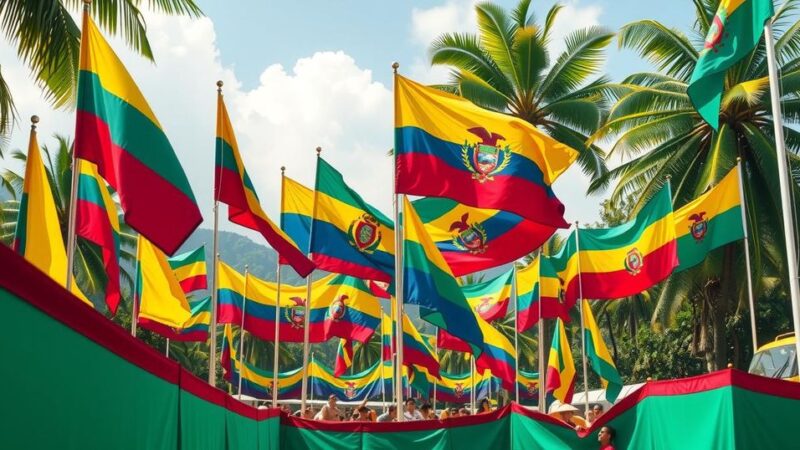Nicaragua’s upcoming constitutional reform aims to centralize presidential power and impose strict controls over media operations. This development, viewed as part of a broader trend among authoritarian regimes in Latin America, raises serious concerns regarding freedom of expression and press freedoms in the country. Advocates argue it will legitimize government repression and enhance penalties for disseminating information labeled as false, further stifling dissent and independent journalism.
Nicaragua is preparing to finalize a constitutional reform that would enhance presidential authority and assert greater control over media. Set for ratification in January, this reform mandates that state powers ensure media outlets are shielded from foreign influences and misinformation. Analysts suggest this mirrors actions taken by other authoritarian regimes in Latin America, including Venezuela and Cuba. Consequently, the government would further advance its suppression of dissent, particularly against independent journalism, as press freedoms have already diminished under President Daniel Ortega’s tenure. Numerous journalists have fled the country to escape persecution, and the proposed changes threaten to codify Ortega’s authoritarian rule, with the vice-presidency being redefined to include his wife as co-president. Critics warn that the modifications signify an alarming shift towards absolute power, legitimizing the government’s capacity to silence opposing viewpoints and regulate information dissemination through severe penalties for those deemed to spread false news. This troubling pattern reinforces a regional trend wherein governments cultivate environments hostile to free expression, as seen in other regions governed by oppressive regimes.
The proposed constitutional change in Nicaragua signifies a potential escalation in the government’s authoritarian practices, reflecting a trend across several Latin American nations. President Daniel Ortega’s administration has gradually tightened its grip on media and civil liberties, mirroring similar actions taken by leaders in Venezuela and Cuba. The new legislation is intended to assure state control over media narratives and a crackdown on dissent, echoing the tactics of oppression that characterize other authoritarian governments in the region. Such reforms pose grave implications for journalists and citizens wishing to express their views or report news free from governmental control.
The imminent reforms to Nicaragua’s constitution represent a significant threat to the principles of freedom of expression and the independence of the press. These developments could solidify President Ortega’s autocratic governance, showcasing a broader trend among authoritarian regimes in the region to suppress dissent and control media narratives. Human rights advocates and press freedom organizations warn that if enacted, these changes will result in profound restrictions on civil liberties in Nicaragua while potentially inspiring similar movements in neighboring countries.
Original Source: www.voanews.com






